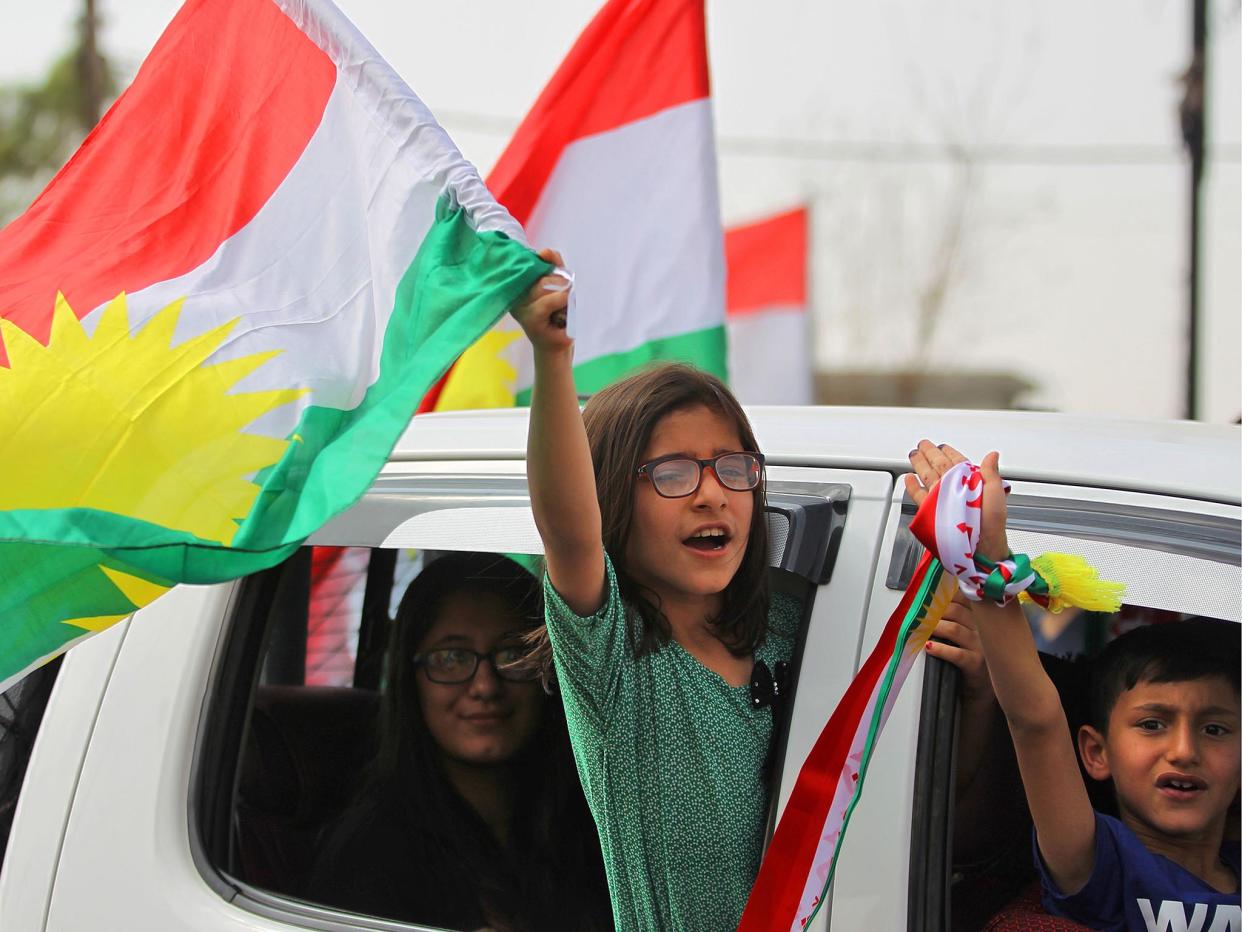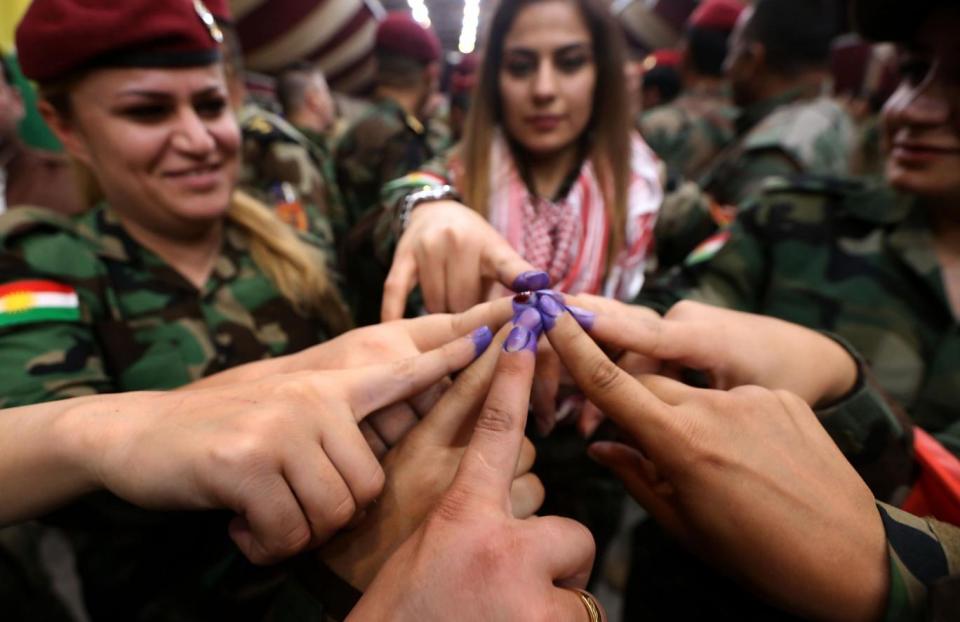Kurdish independence referendum: Millions vote in poll that could help bring down Iraqi government

Iraqi Kurds go to the polls today to cast their votes in a non-binding referendum on Kurdish independence, which outside powers fear will destabilise Iraq.
The vote is taking place not only in the territory of the Kurdistan Regional Government, which has long been highly autonomous, but in areas in dispute – including the oil-producing province of Kirkuk.
Kurdish President Masoud Barzani says holding the referendum is “risky”, but “we are ready to pay any price for our independence”.
An overwhelming “yes” vote is forecast, but there are signs in the last few days of Kurdish leaders playing down nationalist rhetoric.
Kurdish Prime Minister Nechirvan Barzani, nephew of the President, said at a press conference that there would be no immediate independence or “redrawing of borders” between Kurdish- and central government-controlled zones, and that the Kurdish regional leadership would resolve its differences peacefully with the central government in Baghdad.
The Iraqi Prime Minister, Haider al-Abadi, has condemned the poll in a television address to the nation, saying that it “threatens Iraq, peaceful coexistence among Iraqis and is a danger to the region”.
He said that his government would take measures to secure the unity of the nation and protect all Iraqis, but did not spell out what these might be.
International powers like the US, UK, France and Germany – as well as Iraq’s neighbours,Turkey and Iran – have all denounced the referendum, with only Israel supporting it.
It will take time to emerge how far the Kurdish demand for self-determination expressed during the referendum campaign, and the vague threats made by Mr Abadi to prevent it, carry any real weight.
The surge in Kurdish nationalism has generated its own momentum, and relations between Kurdish leaders and their counterparts in Baghdad have deteriorated.
Clashes in disputed areas – a vast swathe of territory stretching across northern Iraq from Syria to Iran – are possible. In addition, the Iraqi government will be even less willing than previously to share power, oil and money with the Kurds.
The Kurds have been in de facto control of Kirkuk and the surrounding province since they captured it during the US-led overthrow of Saddam Hussein in 2003.
During that time there has been continual friction and occasional confrontation between the Kurdish peshmerga and the Shia-dominated Iraqi government forces, but these have never led to full-scale warfare.
The ambiguous situation may continue into the future, since neither side has a realistic military option without the backing of a foreign power. Both Mr Barzani and Mr Abadi are heavily reliant on support from foreign states vying for influence in Iraq.

It will be difficult for the Kurdish leadership to take practical measures to implement a positive referendum vote on independence: a move opposed by countries which have little in common, such as the US, Turkey and Iran.
The US does not want anything to happen that would hamper its offensive to eliminate Isis, now close to success following the capture of Mosul in July.
Iraqi government forces last week launched an attack on Hawija, west of Kirkuk – one of the last big Isis enclaves in Iraq.
The US and its allies fear the break-up of Iraq, which might lead to the fall of Mr Abadi and his replacement with a more pro-Iranian leader. Turkey, for its part, has been rattling sabres, calling on the Kurds to abandon “utopic goals”.
Much of this is shadow boxing, because the referendum, unlike the Brexit vote in Britain in 2015, does not oblige the Kurdish leadership to move towards independence.
Iraqi and international leaders will wait to see how much will truly change on the ground as a result of the referendum.
If it turns out that it is more in the nature of a glorified opinion poll and an attempt to put Kurdish self-determination back on the international agenda but without any follow-through, then the long-term effect of the poll could be limited.
On the other hand, it may mark an important milestone in the progressive breakdown of the power-sharing government in Baghdad, set up after the US invasion, as well as a general deterioration in relations between Kurds and Arabs throughout Iraq.

 Yahoo News
Yahoo News 
